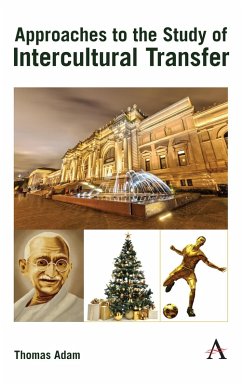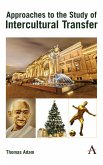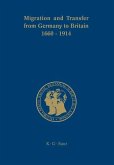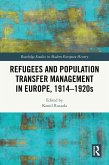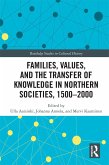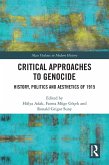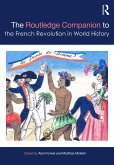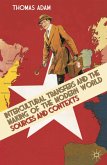"Approaches to the Study of Intercultural Transfer" presents a collection of compelling case studies in the area of social reform, museums, philanthropy, football, nonviolent resistance and holiday rituals such as Christmas that demonstrate key mechanisms of intercultural transfers. Each chapter provides the application of the intercultural transfer studies paradigm to a specific and distinct historical phenomenon. These chapters not only illustrate the presence or even the depth and frequency of intercultural transfer, but they also reveal specific aspects of the intercultural transfer of phenomena, the role of agents of intercultural transfer and the transformations of ideas transferred between cultures thereby, contributing to our understanding of the mechanisms of intercultural transfers.
The transfers explored in this volume provide for a narrative of an interconnected world in which societies and cultures exchanged ideas and objects over long distances connecting places and spaces across the globe and contributing to the creation of distinct local cultures and societies. Ideas about social reform and customs such as the Christmas tree were transferred across political and geographic borders. In the process, they were modified to fit into the receiving society. They lost some of their meaning and received new meaning. The Pagan symbol of the Christmas tree was Christianized through its transfer from cities such as Dresden to cities such as Boston.
Concepts such as Gandhi's nonviolent resistance appealed to many Western observers who considered peaceful and rational conflict solution in the aftermath of World War I as essential to the survival of humankind. The appeal of nonviolent resistance did not result in a full grasp of such phenomena. Western observers misunderstood and mistranslated Satyagraha with passive resistance. Such modifications reveal the nature of intercultural transfer. In this process, the power of adopting a new idea rests with the receiving society. The giving society has little influence over the transfer process and loses control over the transfer fairly early. This contributed to the conundrum of the modern world which, in spite of the multitude of such transfers, became not only more similar but also more dissimilar.
The transfers explored in this volume provide for a narrative of an interconnected world in which societies and cultures exchanged ideas and objects over long distances connecting places and spaces across the globe and contributing to the creation of distinct local cultures and societies. Ideas about social reform and customs such as the Christmas tree were transferred across political and geographic borders. In the process, they were modified to fit into the receiving society. They lost some of their meaning and received new meaning. The Pagan symbol of the Christmas tree was Christianized through its transfer from cities such as Dresden to cities such as Boston.
Concepts such as Gandhi's nonviolent resistance appealed to many Western observers who considered peaceful and rational conflict solution in the aftermath of World War I as essential to the survival of humankind. The appeal of nonviolent resistance did not result in a full grasp of such phenomena. Western observers misunderstood and mistranslated Satyagraha with passive resistance. Such modifications reveal the nature of intercultural transfer. In this process, the power of adopting a new idea rests with the receiving society. The giving society has little influence over the transfer process and loses control over the transfer fairly early. This contributed to the conundrum of the modern world which, in spite of the multitude of such transfers, became not only more similar but also more dissimilar.
Dieser Download kann aus rechtlichen Gründen nur mit Rechnungsadresse in A, D ausgeliefert werden.

